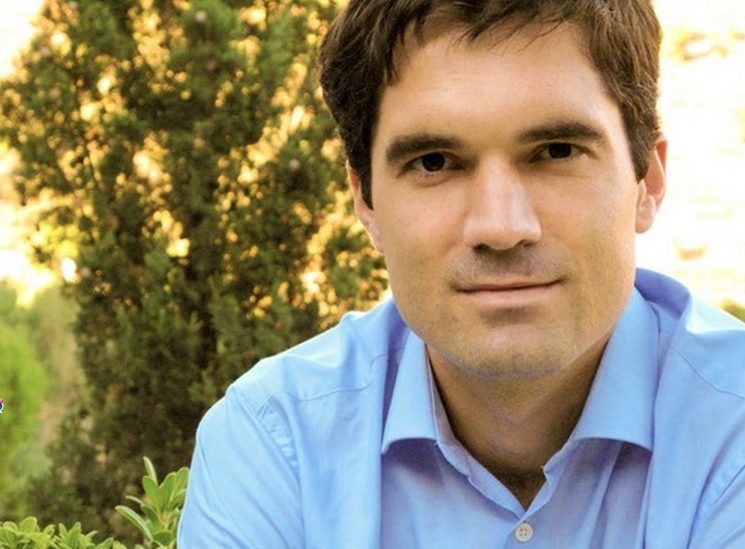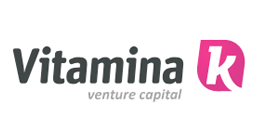“Spain will never be Silicon Valley or Tel Aviv, and it’s not a problem” Iñaki Arrola
Category: Interviews
Iñaki ArrolainvestorsSpainstartups
Iñaki Arrola is the founder of coches.com and one of the founding partners of Vitamina K, a Spanish Venture Capital fund based in Madrid.
After investing in several companies as a business angel –including Startupxplore– Iñaki founded with Rafa Garrido Vitamina K in 2011 to continue to invest in startups based in Spain. To know more about himself, Vitamina K and his opinions on the Spanish startup ecosystem we sat down with him for the following interview.
For those who don’t know you, who is Iñaki Arrola and what’s Vitamina K?
My Twitter bio is probably my best description: “In this order: Husband. Father of almost four. Marathoner. Founder at coches.com, business angel and cofounder of Vitamina K Venture Capital.”
Vitamina K is a fund raised mainly with our own money that tries to help the entrepreneur. We think we can do that better and in a nicer way than most other funds because the majority of the partners are entrepreneurs themselves and have built companies in Spain before.
You first started investing as a business angel and after a while you formed Vitamina K, a traditional VC fund to invest in a more professional way. Why did you make that decision?
It was Rafa Garrido’s idea. We were investing as business angels and we realized that backing companies this way instead of as a VC fund was less efficient for both us and the startups.
We won’t invest our own money in traditional companies. It’s not easy for us to give money to e-commerce startupsIñaki Arrola
With Vitamina K we can invest more money in each round, we can participate in more than just seed rounds, we can do it in a more efficient way from a fiscal point of view and we can also help our entrepreneurs better, thanks to all the contacts Vitamina K’s partners have.
All of the above led to the creation of Vitamina K.
What types of companies or sectors is Vitamina K interested in?
I think it’s more interesting to say which sectors we are not interested in. We are not going to invest our own money in traditional companies or in markets that are already saturated. As an example, it’s not easy for us to give money to e-commerce companies.
Want to know in which kind of companies Vitamina K tends to invest in? Check their profile
We prefer to say that we want to invest in disruptive companies and, especially, in the best entrepreneurs. We have to thank our portfolio companies for allowing us to join them in this journey and to invest in their ideas, because without them VC funds wouldn’t exist.
When choosing a company to invest in, what are the key aspects you take into consideration? In other words, what’s Vitamina K’s investment thesis?
We do all of our homework on markets, trends, KPIs, potential exits, etc. But, as aforementioned, we tend to focus on extraordinary founders. We need to invest in people that will fight for our money as if it was theirs, and that does not happen in our industry as much as we would like.
You’ve been a big defender of the idea that there’s enough capital in Spain to fund all good and promising startups. In your opinion, does that mean that there’s a lack of talent in Spain or that there are not enough big startups that deserve those investments?
I do not think that we are missing talent or big startups. VC investments should flow like a river: money and projects grow together and we think in Spain things are flowing nicely. If you look back five years ago and analyze what we had before and what we have now, I think it’s pretty clear that the ecosystem has evolved a lot in terms of startups, money or deals.
We’re experiencing a big injection of capital from the Spanish and European governments, Fondico and the European Investment fund, respectively. Are these injections of public money good for the Spanish VC industry? Are they necessary to help the sector evolve?
I think we have enough money and I’m not sure if these public capital injections will work out in a good way for VCs and entrepreneurs.
At Vitamina K we think that one of the main consequences of this is that more projects and startups will be created because of the increase in capital, and that could be good or bad for the ecosystem depending on the ideas, products and teams that join the market. The key to us is that the river doesn’t stop flowing and that the quality doesn’t go down.
Given your role as both a founder (coches.com) and investor, you have a good perspective of the Spanish ecosystem, which has evolved significantly in recent years. What do you think of its evolution and how do you think it can still improve in coming years? Both from a founder and investor point of view.
Spain is never going to be as strong as Silicon Valley or Tel Aviv and this is not a problem. We need to grow by ourselves.
We are developing nicely and there’s no need to rush things. I think we just need to tell people that this is not easy, that startups don’t become successful overnight and that it takes time to build a strong ecosystem where all parts involved grow in a coherent way.
You recently wrote a post in which you provided examples that show that exits don’t happen overnight. In Spain we’ve seen the ‘cultura del pelotazo’ in many other industries in the past decade, such as construction or real estate. Do you also see signs of that attitude towards success when it comes to startups?
It is not a problem to say that the biggest companies in Spain and in the world have been built with patience and with hard work over a long period time. Think about Google, who have been at it for 16 years and still have a lot of room to grow and new markets to explore.
We should not focus on our milestones but on the nice time we had when we were on the road.







